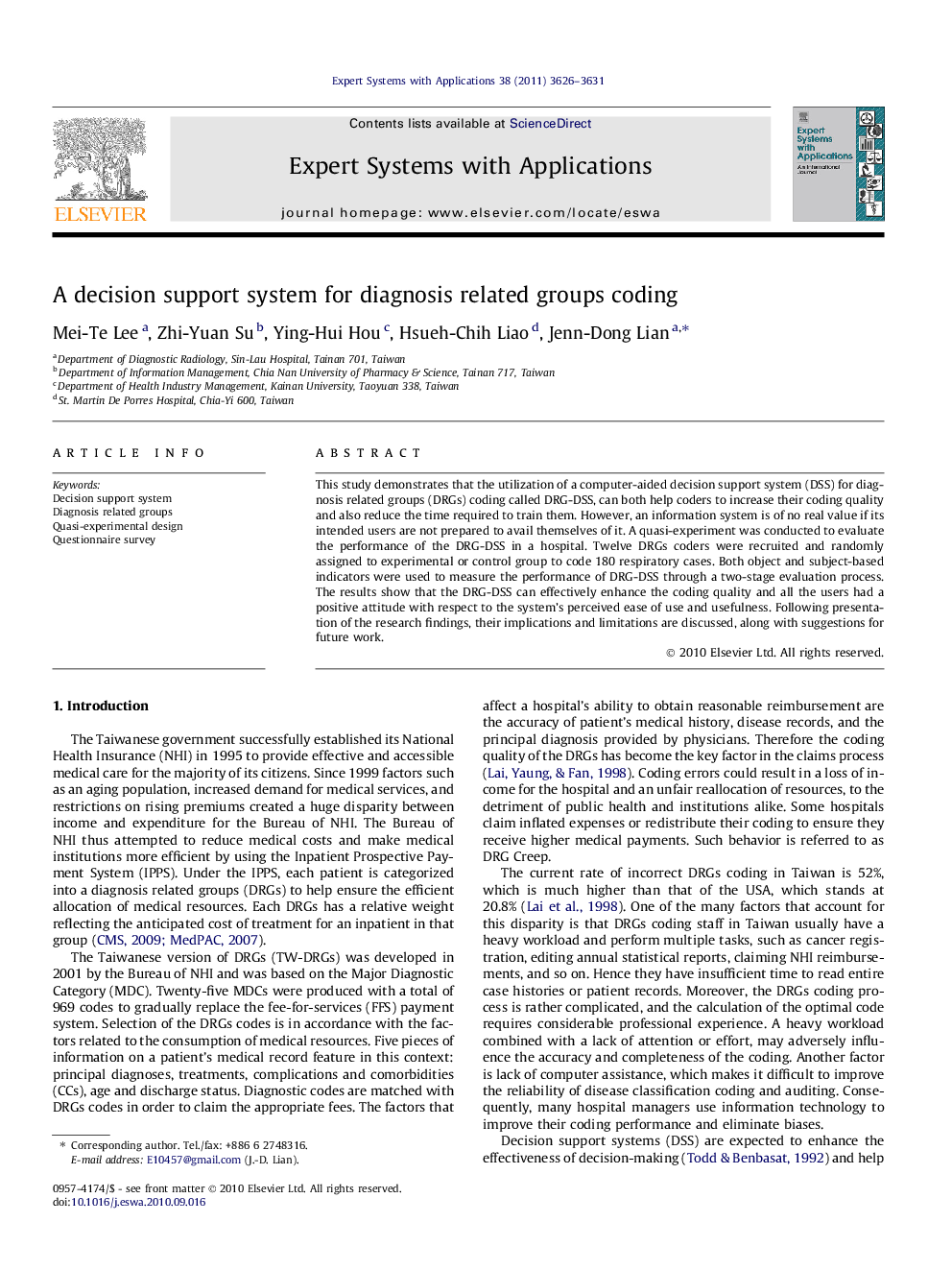| کد مقاله | کد نشریه | سال انتشار | مقاله انگلیسی | نسخه تمام متن |
|---|---|---|---|---|
| 386021 | 660876 | 2011 | 6 صفحه PDF | دانلود رایگان |

This study demonstrates that the utilization of a computer-aided decision support system (DSS) for diagnosis related groups (DRGs) coding called DRG-DSS, can both help coders to increase their coding quality and also reduce the time required to train them. However, an information system is of no real value if its intended users are not prepared to avail themselves of it. A quasi-experiment was conducted to evaluate the performance of the DRG-DSS in a hospital. Twelve DRGs coders were recruited and randomly assigned to experimental or control group to code 180 respiratory cases. Both object and subject-based indicators were used to measure the performance of DRG-DSS through a two-stage evaluation process. The results show that the DRG-DSS can effectively enhance the coding quality and all the users had a positive attitude with respect to the system’s perceived ease of use and usefulness. Following presentation of the research findings, their implications and limitations are discussed, along with suggestions for future work.
Research highlights
► System recommended primary diagnosis for users.
► Optimized DRGs and the relative weight of the DRGs code that the system provides.
► System prompts for complications and comorbidities of the case.
Journal: Expert Systems with Applications - Volume 38, Issue 4, April 2011, Pages 3626–3631